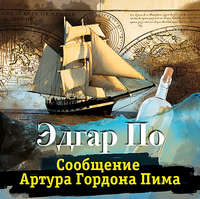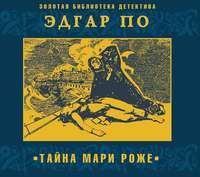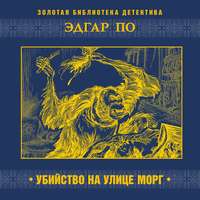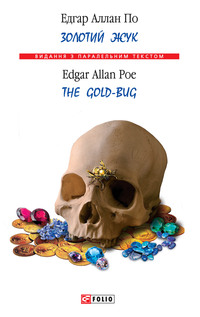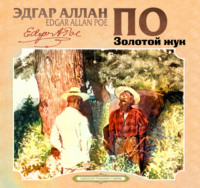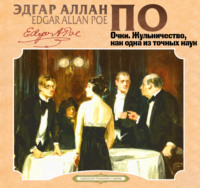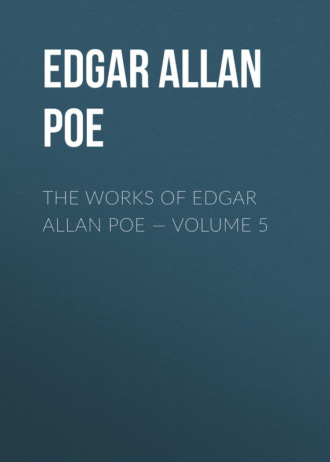 полная версия
полная версияThe Works of Edgar Allan Poe – Volume 5
2. The bibliographical history of “The Bells” is curious. The subject, and some lines of the original version, having been suggested by the poet’s friend, Mrs. Shew, Poe, when he wrote out the first draft of the poem, headed it, “The Bells, By Mrs. M. A. Shew.” This draft, now the editor’s property, consists of only seventeen lines, and read thus:
I The bells! – ah, the bells! The little silver bells! How fairy-like a melody there floats From their throats — From their merry little throats — From the silver, tinkling throats Of the bells, bells, bells — Of the bells!II The bells! – ah, the bells! The heavy iron bells! How horrible a monody there floats From their throats — From their deep-toned throats — From their melancholy throats! How I shudder at the notes Of the bells, bells, bells — Of the bells!In the autumn of 1848 Poe added another line to this poem, and sent it to the editor of the “Union Magazine.” It was not published. So, in the following February, the poet forwarded to the same periodical a much enlarged and altered transcript. Three months having elapsed without publication, another revision of the poem, similar to the current version, was sent, and in the following October was published in the “Union Magazine.”
3. This poem was first published in Colton’s “American Review” for December, 1847, as “To – Ulalume: a Ballad.” Being reprinted immediately in the “Home Journal,” it was copied into various publications with the name of the editor, N. P. Willis, appended, and was ascribed to him. When first published, it contained the following additional stanza which Poe subsequently, at the suggestion of Mrs. Whitman, wisely suppressed:
Said we then – we two, then – “Ah, can it Have been that the woodlandish ghouls — The pitiful, the merciful ghouls — To bar up our path and to ban it From the secret that lies in these wolds — Had drawn up the spectre of a planet From the limbo of lunary souls — This sinfully scintillant planet From the Hell of the planetary souls?”4. “To Helen!” (Mrs. S. Helen Whitman) was not published until November, 1848, although written several months earlier. It first appeared in the “Union Magazine,” and with the omission, contrary to the knowledge or desire of Poe, of the line, “Oh, God! oh, Heaven – how my heart beats in coupling those two words.”
5. “Annabel Lee” was written early in 1849, and is evidently an expression of the poet’s undying love for his deceased bride, although at least one of his lady admirers deemed it a response to her admiration. Poe sent a copy of the ballad to the “Union Magazine,” in which publication it appeared in January, 1850, three months after the author’s death. While suffering from “hope deferred” as to its fate, Poe presented a copy of “Annabel Lee” to the editor of the “Southern Literary Messenger,” who published it in the November number of his periodical, a month after Poe’s death. In the meantime the poet’s own copy, left among his papers, passed into the hands of the person engaged to edit his works, and he quoted the poem in an obituary of Poe, in the New York “Tribune,” before any one else had an opportunity of publishing it.
6. “A Valentine,” one of three poems addressed to Mrs. Osgood, appears to have been written early in 1846.
7. “An Enigma,” addressed to Mrs. Sarah Anna Lewis (“Stella”), was sent to that lady in a letter, in November, 1847, and the following March appeared in Sartain’s “Union Magazine.”
8. The sonnet, “To My Mother” (Maria Clemm), was sent for publication to the short-lived “Flag of our Union,” early in 1849,’ but does not appear to have been issued until after its author’s death, when it appeared in the “Leaflets of Memory” for 1850.
9. “For Annie” was first published in the “Flag of our Union,” in the spring of 1849. Poe, annoyed at some misprints in this issue, shortly afterwards caused a corrected copy to be inserted in the “Home Journal.”
10. “To F – ” (Frances Sargeant Osgood) appeared in the “Broadway journal” for April, 1845. These lines are but slightly varied from those inscribed “To Mary,” in the “Southern Literary Messenger” for July, 1835, and subsequently republished, with the two stanzas transposed, in “Graham’s Magazine” for March, 1842, as “To One Departed.”
11. “To F – s S. O – d,” a portion of the poet’s triune tribute to Mrs. Osgood, was published in the “Broadway Journal” for September, 1845. The earliest version of these lines appeared in the “Southern Literary Messenger” for September, 1835, as “Lines written in an Album,” and was addressed to Eliza White, the proprietor’s daughter. Slightly revised, the poem reappeared in Burton’s “Gentleman’s Magazine” for August, 1839, as “To – .”
12. Although “Eldorado” was published during Poe’s lifetime, in 1849, in the “Flag of our Union,” it does not appear to have ever received the author’s finishing touches.
POEMS OF MANHOOD
LENORE
AH broken is the golden bowl! the spirit flown forever! Let the bell toll! – a saintly soul floats on the Stygian river; And, Guy De Vere, hast thou no tear? – weep now or never more! See! on yon drear and rigid bier low lies thy love, Lenore! Come! let the burial rite be read – the funeral song be sung! — An anthem for the queenliest dead that ever died so young — A dirge for her the doubly dead in that she died so young. “Wretches! ye loved her for her wealth and hated her for her pride, “And when she fell in feeble health, ye blessed her – that she died! “How shall the ritual, then, be read? – the requiem how be sung “By you – by yours, the evil eye, – by yours, the slanderous tongue “That did to death the innocent that died, and died so young?” Peccavimus; but rave not thus! and let a Sabbath song Go up to God so solemnly the dead may feel so wrong! The sweet Lenore hath “gone before,” with Hope, that flew beside Leaving thee wild for the dear child that should have been thy bride — For her, the fair and debonair, that now so lowly lies, The life upon her yellow hair but not within her eyes — The life still there, upon her hair – the death upon her eyes. “Avaunt! to-night my heart is light. No dirge will I upraise, “But waft the angel on her flight with a Paean of old days! “Let no bell toll! – lest her sweet soul, amid its hallowed mirth, “Should catch the note, as it doth float – up from the damned Earth. “To friends above, from fiends below, the indignant ghost is riven — “From Hell unto a high estate far up within the Heaven — “From grief and groan, to a golden throne, beside the King of Heaven.”TO ONE IN PARADISE
THOU wast all that to me, love, For which my soul did pine — A green isle in the sea, love, A fountain and a shrine, All wreathed with fairy fruits and flowers, And all the flowers were mine. Ah, dream too bright to last! Ah, starry Hope! that didst arise But to be overcast! A voice from out the Future cries, “On! on!” – but o’er the Past (Dim gulf!) my spirit hovering lies Mute, motionless, aghast! For, alas! alas! with me The light of Life is o’er! No more – no more – no more — (Such language holds the solemn sea To the sands upon the shore) Shall bloom the thunder-blasted tree, Or the stricken eagle soar! And all my days are trances, And all my nightly dreams Are where thy dark eye glances, And where thy footstep gleams — In what ethereal dances, By what eternal streams.1835.
THE COLISEUM
TYPE of the antique Rome! Rich reliquary Of lofty contemplation left to Time By buried centuries of pomp and power! At length – at length – after so many days Of weary pilgrimage and burning thirst, (Thirst for the springs of lore that in thee lie,) I kneel, an altered and an humble man, Amid thy shadows, and so drink within My very soul thy grandeur, gloom, and glory! Vastness! and Age! and Memories of Eld! Silence! and Desolation! and dim Night! I feel ye now – I feel ye in your strength — O spells more sure than e’er Judæan king Taught in the gardens of Gethsemane! O charms more potent than the rapt Chaldee Ever drew down from out the quiet stars! Here, where a hero fell, a column falls! Here, where the mimic eagle glared in gold, A midnight vigil holds the swarthy bat! Here, where the dames of Rome their gilded hair Waved to the wind, now wave the reed and thistle! Here, where on golden throne the monarch lolled, Glides, spectre-like, unto his marble home, Lit by the wanlight – wan light of the horned moon, The swift and silent lizard of the stones! But stay! these walls – these ivy-clad arcades — These mouldering plinths – these sad and blackened shafts — These vague entablatures – this crumbling frieze — These shattered cornices – this wreck – this ruin — These stones – alas! these gray stones – are they all — All of the famed, and the colossal left By the corrosive Hours to Fate and me? “Not all” – the Echoes answer me – “not all! “Prophetic sounds and loud, arise forever “From us, and from all Ruin, unto the wise, “As melody from Memnon to the Sun. “We rule the hearts of mightiest men – we rule “With a despotic sway all giant minds. “We are not impotent – we pallid stones. “Not all our power is gone – not all our fame — “Not all the magic of our high renown — “Not all the wonder that encircles us — “Not all the mysteries that in us lie — “Not all the memories that hang upon “And cling around about us as a garment, “Clothing us in a robe of more than glory.”1833.
THE HAUNTED PALACE
IN the greenest of our valleys By good angels tenanted, Once a fair and stately palace — Radiant palace – reared its head. In the monarch Thought’s dominion — It stood there! Never seraph spread a pinion Over fabric half so fair. Banners yellow, glorious, golden, On its roof did float and flow, (This – all this – was in the olden Time long ago,) And every gentle air that dallied, In that sweet day, Along the ramparts plumed and pallid, A winged odour went away. Wanderers in that happy valley, Through two luminous windows, saw Spirits moving musically, To a lute’s well-tuned law, Round about a throne where, sitting (Porphyrogene) In state his glory well befitting, The ruler of the realm was seen. And all with pearl and ruby glowing Was the fair palace door, Through which came flowing, flowing, flowing, And sparkling evermore, A troop of Echoes, whose sweet duty Was but to sing, In voices of surpassing beauty, The wit and wisdom of their king. But evil things, in robes of sorrow, Assailed the monarch’s high estate. (Ah, let us mourn! – for never sorrow Shall dawn upon him desolate!) And round about his home the glory That blushed and bloomed, Is but a dim-remembered story Of the old time entombed. And travellers, now, within that valley, Through the red-litten windows see Vast forms, that move fantastically To a discordant melody, While, lie a ghastly rapid river, Through the pale door A hideous throng rush out forever And laugh – but smile no more.1838.
THE CONQUEROR WORM
LO! ‘tis a gala night Within the lonesome latter years! An angel throng, bewinged, bedight In veils, and drowned in tears, Sit in a theatre, to see A play of hopes and fears, While the orchestra breathes fitfully The music of the spheres. Mimes, in the form of God on high, Mutter and mumble low, And hither and thither fly — Mere puppets they, who come and go At bidding of vast formless things That shift the scenery to and fro, Flapping from out their Condor wings Invisible Wo! That motley drama – oh, be sure It shall not be forgot! With its Phantom chased for evermore, By a crowd that seize it not, Through a circle that ever returneth in To the self-same spot, And much of Madness, and more of Sin, And Horror the soul of the plot. But see, amid the mimic rout A crawling shape intrude! A blood-red thing that writhes from out The scenic solitude! It writhes! – it writhes! – with mortal pangs The mimes become its food, And the angels sob at vermin fangs In human gore imbued. Out – out are the lights – out all! And, over each quivering form, The curtain, a funeral pall, Comes down with the rush of a storm, And the angels, all pallid and wan, Uprising, unveiling, affirm That the play is the tragedy, “Man,” And its hero the Conqueror Worm.1838.
SILENCE
THERE are some qualities – some incorporate things, That have a double life, which thus is made A type of that twin entity which springs From matter and light, evinced in solid and shade. There is a two-fold Silence– sea and shore — Body and soul. One dwells in lonely places, Newly with grass o’ergrown; some solemn graces, Some human memories and tearful lore, Render him terrorless: his name’s “No More.” He is the corporate Silence: dread him not! No power hath he of evil in himself; But should some urgent fate (untimely lot!) Bring thee to meet his shadow (nameless elf, That haunteth the lone regions where hath trod No foot of man,) commend thyself to God!1840.
DREAM-LAND
BY a route obscure and lonely, Haunted by ill angels only, Where an Eidolon, named NIGHT, On a black throne reigns upright, I have reached these lands but newly From an ultimate dim Thule — From a wild weird clime that lieth, sublime, Out of SPACE – out of TIME. Bottomless vales and boundless floods, And chasms, and caves, and Titian woods, With forms that no man can discover For the dews that drip all over; Mountains toppling evermore Into seas without a shore; Seas that restlessly aspire, Surging, unto skies of fire; Lakes that endlessly outspread Their lone waters – lone and dead, — Their still waters – still and chilly With the snows of the lolling lily. By the lakes that thus outspread Their lone waters, lone and dead, — Their sad waters, sad and chilly With the snows of the lolling lily, — By the mountains – near the river Murmuring lowly, murmuring ever, — By the grey woods, – by the swamp Where the toad and the newt encamp, — By the dismal tarns and pools Where dwell the Ghouls, — By each spot the most unholy — In each nook most melancholy, — There the traveller meets aghast Sheeted Memories of the Past — Shrouded forms that start and sigh As they pass the wanderer by — White-robed forms of friends long given, In agony, to the Earth – and Heaven. For the heart whose woes are legion ‘Tis a peaceful, soothing region — For the spirit that walks in shadow ‘Tis – oh ‘tis an Eldorado! But the traveller, travelling through it, May not – dare not openly view it; Never its mysteries are exposed To the weak human eye unclosed; So wills its King, who hath forbid The uplifting of the fringed lid; And thus the sad Soul that here passes Beholds it but through darkened glasses. By a route obscure and lonely, Haunted by ill angels only, Where an Eidolon, named NIGHT, On a black throne reigns upright, I have wandered home but newly From this ultimate dim Thule.1844.
HYMN
AT morn – at noon – at twilight dim — Maria! thou hast heard my hymn! In joy and wo – in good and ill — Mother of God, be with me still! When the Hours flew brightly by And not a cloud obscured the sky, My soul, lest it should truant be, Thy grace did guide to thine and thee; Now, when storms of Fate o’ercast Darkly my Present and my Past, Let my Future radiant shine With sweet hopes of thee and thine!1835.
TO ZANTE
FAIR isle, that from the fairest of all flowers, Thy gentlest of all gentle names dost take How many memories of what radiant hours At sight of thee and thine at once awake! How many scenes of what departed bliss! How many thoughts of what entombed hopes! How many visions of a maiden that is No more – no more upon thy verdant slopes! No more! alas, that magical sad sound Transfomring all! Thy charms shall please no more— Thy memory no more! Accursed ground Henceforth I hold thy flower-enamelled shore, O hyacinthine isle! O purple Zante! “Isoa d’oro! Fior di Levante!”1837.
SCENES FROM “POLITIAN”
AN UNPUBLISHED DRAMAIROME. – A Hall in a Palace Alessandra and Castiglione.
Alessandra. Thou art sad, Castiglione. Castiglione. Sad! – not I. Oh, I’m the happiest, happiest man in Rome! A few days more, thou knowest, my Alessandra, Will make thee mine. Oh, I am very happy! Aless. Methinks thou hast a singular way of showing Thy happiness! – what ails thee, cousin of mine? Why didst thou sigh so deeply? Cas. Did I sign? I was not conscious of it. It is a fashion, A silly – a most silly fashion I have When I am very happy. Did I sigh? (sighing.) Aless. Thou didst. Thou art not well. Thou hast indulged Too much of late, and I am vexed to see it. Late hours and wine, Castiglione, – these Will ruin thee! thou art already altered — Thy looks are haggard – nothing so wears away The constitution as late hours and wine. Cas. (musing.) Nothing, fair cousin, nothing – not even deep sorrow — Wears it away like evil hours and wine. I will amend. Aless. Do it! I would have thee drop Thy riotous company, too – fellows low born — Ill suit the like with old Di Broglio’s heir And Alessandra’s husband. Cas. I will drop them. Aless. Thou wilt – thou must. Attend thou also more To thy dress and equipage – they are over plain For thy lofty rank and fashion – much depends Upon appearances. Cas. I’ll see to it. Aless. Then see to it! – pay more attention, sir, To a becoming carriage – much thou wantest In dignity. Cas. Much, much, oh! much I want In proper dignity. Aless.(haughtily) Thou mockest me, sir! Cas. (abstractedly.) Sweet, gentle Lalage! Aless. Heard I aright? I speak to him – he speaks of Lalage! Sir Count! (places her hand on his shoulder) what art thou dreaming? he’s not well! What ails thee, sir? Cas. (startling.) Cousin! fair cousin! – madam! I crave thy pardon – indeed I am not well — Your hand from off my shoulder, if you please. This air is most oppressive! – Madam – the Duke!Enter Di Broglio.
Di Broglio. My son, I’ve news for thee! – hey? – what’s the matter? (observing Alessandra) I’ the pouts? Kiss her, Castiglione! kiss her, You dog! and make it up, I say, this minute! I’ve news for you both. Politian is expected Hourly in Rome – Politian, Earl of Leicester! We’ll have him at the wedding. ‘Tis his first visit To the imperial city. Aless. What! Politian Of Britain, Earl of Leicester? Di Brog. The same, my love. We’ll have him at the wedding. A man quite young In years, but grey in fame. I have not seen him, But Rumour speaks of him as of a prodigy Pre-eminent in arts and arms, and wealth, And high descent. We’ll have him at the wedding. Aless. I have heard much of this Politian. Gay, volatile and giddy – is he not? And little given to thinking. Di Brog. Far from it, love. No branch, they say, of all philosophy So deep abstruse he has not mastered it. Learned as few are learned. Aless. ‘Tis very strange! I have known men have seen Politian And sought his company. They speak of him As of one who entered madly into life, Drinking the cup of pleasure to the dregs. Cas. Ridiculous! Now I have seen Politian And know him well – nor learned nor mirthful he. He is a dreamer and a man shut out From common passions. Di Brog. Children, we disagree. Let us go forth and taste the fragrant air Of the garden. Did I dream, or did I hear Politian was a melancholy man? (exeunt.)IIROME. A Lady’s apartment, with a window open and looking into a garden.
Lalage, in deep mourning, reading at a table on which lie some books and a
hand mirror. In the background Jacinta (a servant maid) leans carelessly
upon a chair.
Lal. [Lalage] Jacinta! is it thou? Jac. [Jacinta] (pertly.) Yes, Ma’am, I’m here. Lal. I did not know, Jacinta, you were in waiting. Sit down! – Let not my presence trouble you — Sit down! – for I am humble, most humble. Jac. (aside.) ‘Tis time.(Jacinta seats herself in a side-long manner upon the chair, resting her
elbows upon the back, and regarding her mistress with a contemptuous look.
Lalage continues to read. )
Lal. “It in another climate, so he said, “Bore a bright golden flower, but not i’ this soil!”(pauses – turns over some leaves, and resumes)
“No lingering winters there, nor snow, nor shower — “But Ocean ever to refresh mankind “Breathes the shrill spirit of the western wind.” O, beautiful! – most beautiful – how like To what my fevered soul doth dream of Heaven! O happy land (pauses) She died! – the maiden died! A still more happy maiden who couldst die! Jacinta!(Jacinta returns no answer, and Lalage presently resumes.)
Again! – a similar tale Told of a beauteous dame beyond the sea! Thus speaketh one Ferdinand in the words of the play — “She died full young” – one Bossola answers him — “I think not so – her infelicity “Seemed to have years too many” – Ah luckless lady! Jacinta! (still no answer) Here ‘s a far sterner story, But like – oh, very like in its despair — Of that Egyptian queen, winning so easily A thousand hearts – losing at length her own. She died. Thus endeth the history – and her maids Lean over and weep – two gentle maids With gentle names – Eiros and Charmion! Rainbow and Dove! – Jacinta! Jac. (pettishly.) Madam, what is it? Lal. Wilt thou, my good Jacinta, be so kind As go down in the library and bring me The Holy Evangelists. Jac. Pshaw! (exit.) Lal. If there be balm For the wounded spirit in Gilead it is there! Dew in the night time of my bitter trouble Will there be found – “dew sweeter far than that Which hangs like chains of pearl on Hermon hill.”(re-enter Jacinta, and throws a volume on the table.)
There, ma’am, ‘s the book. Indeed she is very troublesome. (aside.) Lal. (astonished.) What didst thou say, Jacinta? Have I done aught To grieve thee or to vex thee? – I am sorry. For thou hast served me long and ever been Trust-worthy and respectful. (resumes her reading.) Jac. I can’t believe She has any more jewels – no – no – she gave me all. (aside.) Lal. What didst thou say, Jacinta? Now I bethink me Thou hast not spoken lately of thy wedding. How fares good Ugo? – and when is it to be? Can I do aught? – is there no farther aid Thou needest, Jacinta? Jac. Is there no farther aid! That’s meant for me. (aside) I’m sure, madam, you need not Be always throwing those jewels in my teeth. Lal. Jewels! Jacinta, – now indeed, Jacinta, I thought not of the jewels. Jac. Oh! perhaps not! But then I might have sworn it. After all, There ‘s Ugo says the ring is only paste, For he ‘s sure the Count Castiglione never Would have given a real diamond to such as you; And at the best I’m certain, Madam, you cannot Have use for jewels now. But I might have sworn it. (exit.)(Lalage bursts into tears and leans her head upon the table – after a




